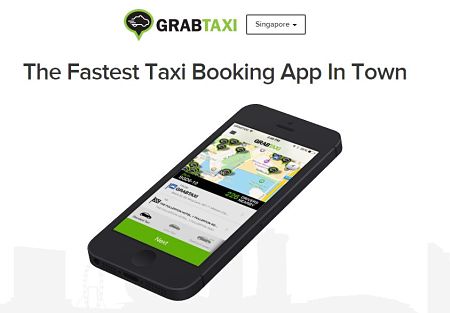In response to Uber’s dominance in the ride-hail industry, competitors San Francisco-based Lyft and China’s Didi Kuaidi have formed an international alliance to battle the industry leader.

Lyft and Didi Kuaidi recently announced they have expanded their alliance to include India’s Ola and Southeast Asia’s GrabTaxi. Didi Kuaidi invested $100 million in Lyft.
Through the global alliance, the companies will collaborate and leverage each other’s technology, local market knowledge and business resources so that international travelers can seamlessly access local on-demand rides by using the same application they use at home.
Each company will handle mapping, routing and payments through a secure API in their country of operation.
Though the companies did not elaborate, the partnership may allow users to pay for rides in other countries using the app they use in the home country in the future.
“The partnership with Lyft, GrabTaxi and Ola allows Chinese users unprecedented ease of international travel and will be a win for the diversity and vitality of the global rideshare industry,” said Cheng Wei, CEO of Didi Kuaidi.
Didi Kuaidi says it serves some 200 million people in 360 Chinese cities. The company says it accounts for 80 percent of China's private car service market and more than 90 percent of its taxi hailing service market. San Francisco-based Lyft operates in more than 190 U.S. cities.
China’s government is considering regulations that would impose taxi-like restrictions on private car-hailing services and could raise costs for internet booking companies.
Such regulations would require internet-based car-booking operators to obtain licenses, set up local offices and maintain China-based servers, according to China’s Ministry of Transportation.
GrabTaxi, founded in 2012, offers private cars, motorcycle taxi and other services in Malaysia, Singapore, Indonesia, Philippines, Vietnam and Thailand.
Ola operates in 102 Indian cities and says it is the country's most popular app for personal transportation.
The partnership came about when Lyft approached an investor about expanding into China. Instead of navigating the country’s regulatory hurdles and cultural differences on its own, the investor recommended that Lyft team up with Didi Kuaidi.
The deal could help drive more international users to Lyft when they visit the U.S., given the convenience of being able to rely on the same app they use at home. Many users in Asia pay via other methods than credit cards, and those with credit cards may have concerns about fees for overseas charges.
Joining with the Asian ride-sharing players could be a first step toward a broader international expansion for Lyft.
The deal is the first concerted effort to battle Uber across continents after four years of the ride-hailing leader expanding aggressively outside the U.S.
Uber faces its greatest competition in Asia. Dense urban populations and widespread smartphone adoption have made Asia particularly fertile ground for ride-hailing startups.
Japan’s SoftBank Group Corp. and investment firm Tiger Global Management LLC have led a clutch of investors pouring billions of dollars into local Asian ride-hailing companies. That funding has allowed local startups to offer subsidies to drivers and riders. As a result, they have grown quickly and built a significant market share.
Didi Kuaidi, formed in 2015 by the merger of two local rivals, is valued at $16 billion. India’s Ola has a valuation of $5 billion. Didi Kuaidi is trying to monetize its huge pool of users, with a recent announcement that it is building the company’s new test drive service into a platform that connects mobile users to car dealers.
Didi Kuaidi says its test drive service, launched in October, has already attracted more than 1.8 million users, resulting in 1.4 million orders. The platform allows users to test drive 92 car models from 19 brands, including Toyota, Mercedes-Benz, Lincoln and Audi. The company also helps car dealers selling online by designing targeted advertising based on its user data.
Didi Kuaidi plans to add e-commerce functions such as pricing and demand projections, with the goal of letting e-commerce become “part of Didi’s day-to-day operations.”
“Didi’s test drive service is not mature,” said Cheng Wei. “But it is a product that will definitely change the auto industry.”
